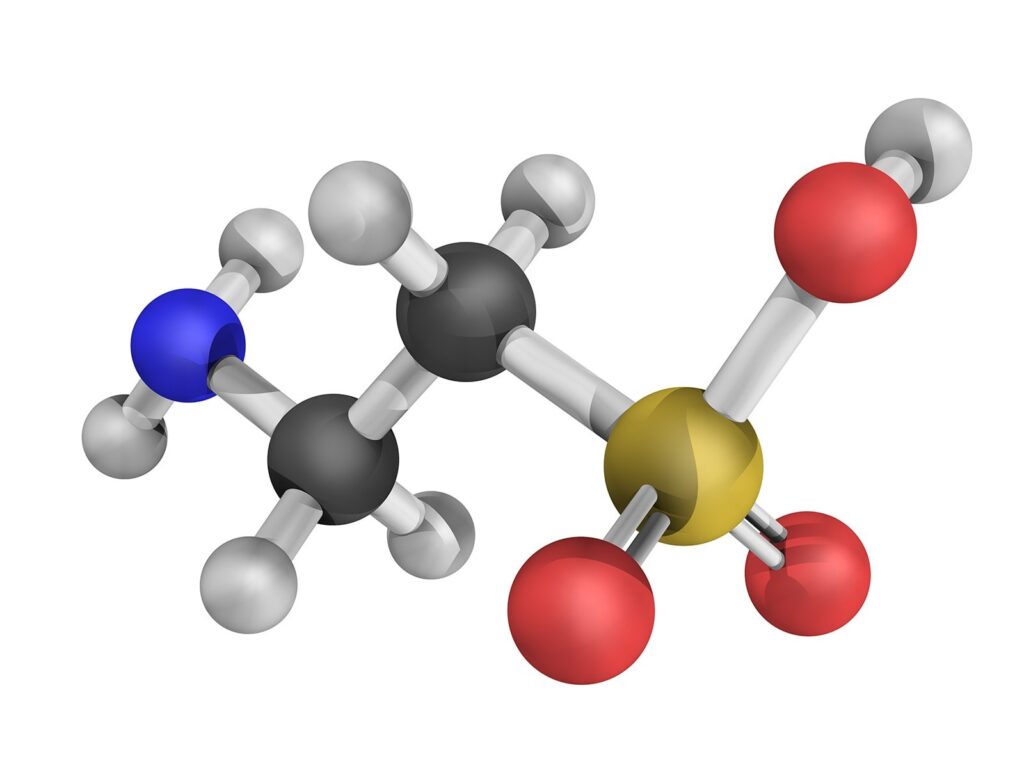$84
TAURINE
Taurine can be made by our bodies, but often not in sufficient quantities, and the remainder must come from the diet. Taurine is found in animal products, and thus levels are significantly lower in vegans. Taurine acts as an antioxidant, and is also important in digestion, membrane stabilization, and modulation of calcium signaling. Taurine is present at high concentration in muscle, heart, retina, and brain, whereas it is essential for function. Taurine is often supplemented in people with disorders involving these tissues. Taurine crosses the blood-brain-barrier and acts as an inhibitory neurotransmitter. Taurine is a frequent component of energy drinks as can improve exercise performance. Side effects are rare at usual doses used in supplementation. Taurine might increase blood levels of lithium in people treated with this drug.
Taurine in EnergyNeeds®
Taurine is added in order to provide a wide basis of nutrition, especially given the important role of taurine in the function of nerve and muscle. Side effects are unexpected.

Often called an amino acid, taurine is actually an amino sulfonic acid, and is not part of proteins. Taurine can be made by our bodies, but often not in sufficient quantities, and the remainder must come from the diet. Taurine is present in many animal products (e.g. meat, dairy).
Taurine acts as an antioxidant, and is also important in digestion (being a major part of bile), membrane stabilization, and modulation of calcium signaling. Taurine is present at high concentration in muscle, heart, retina, and brain, whereas it is essential for function. Taurine crosses the blood-brain-barrier and acts as an inhibitory neurotransmitter.
Since our bodies can synthesize taurine and it is present in many foods, deficiency is rare. However, levels are significantly lower in vegans.
Taurine is used for many purposes, including in disorders of the muscles, heart, eye, brain, and liver. Taurine is a frequent component of energy drinks as can improve exercise performance. Taurine may also help with glucose tolerance.
Taurine is present in animal products, and is generally recognized as safe (GRAS-status). Taurine is present in many energy drinks at amounts as high as 1,000 to 2,000 mg. Taurine might increase blood levels of lithium in people treated with this drug.
Testing is neither generally available nor of apparent clinical utility.
How and Why is Taurine Used in EnergyNeeds®
Taurine is added in order to provide a wide basis of nutrition, especially given the important role of taurine in the function of nerve and muscle. In addition, taurine is an antioxidant and can improve exercise performance. Side effects are unexpected at the doses used in EnergyNeeds®.
Order EnergyNeeds®Today
Formulations










